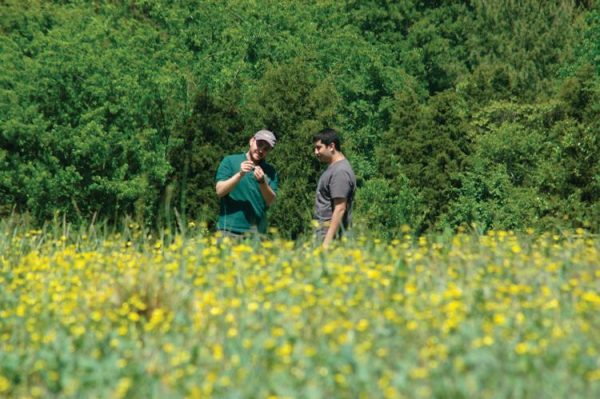Waste to Fertilizer to Biofuel

The research of Ph.D. student Fabien Besnard has multiple positive implications. It is reclaiming waste material from construction sites, producing fertilizer, and increasing the yield of plants for use in biodiesel.
“We are researching the feasibility of taking waste virgin sheetrock from construction sites,” Besnard said, “grinding it up and using it as soil amendment. Specifically, we are looking at using it on canola crops, because canola has biodiesel potential.”
Besnard’s research is part of two larger Infrastructure, Design, Environment and Sustainability Center (IDEAS) projects – one to study uses for construction and demolition wastes, and another to study municipal biodiesel production using grease trap wastes and seed crops.
Sheetrock, also known as drywall or gypsum board, is made primarily of gypsum. Gypsum is a mineral (CaSO4) made of calcium and sulfate. Large quantities of waste virgin wallboard from construction sites are disposed in landfills, which can lead to hydrogen sulfide production and emissions. Canola plants benefit from sulfur addition, which makes gypsum amendment a good match for this crop.
Besnard applied his first batch of ground sheetrock to a section of a field of canola that was planted in October 2009 on land owned by Charlotte Mecklenburg Utilities. When harvested in early summer 2010, he will compare the yield of the sheetrock amended section to the rest of the field.
“We are learning a lot about farming, as well as recycling materials,” Besnard said. “We are having to deal with deer that seem to really like our canola. Hopefully our sheetrock fertilizer will give us a big enough crop to overcome our losses to the deer.”
For more information contact Dr. Helene Hilger at hhilger@uncc.edu.